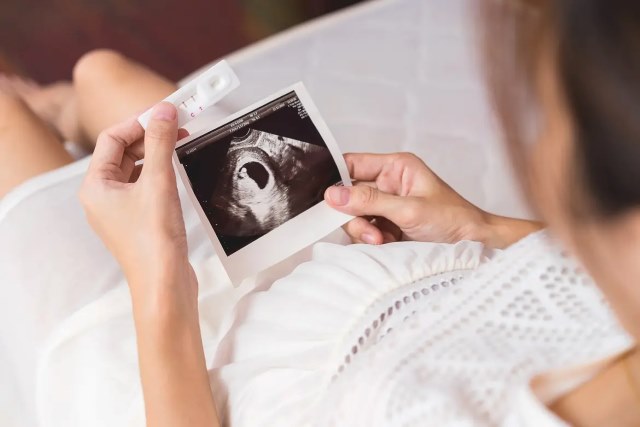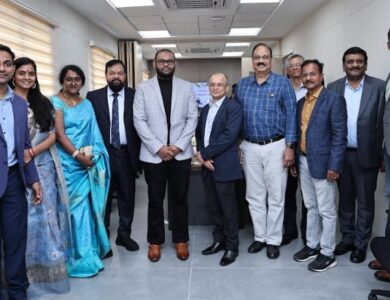Navigating the Challenges of Poor Ovarian Reserve: Here is Why You Should Not Delay Your Marriage

Poor Ovarian Reserve (POR) is a condition that affects a woman’s fertility and reproductive potential. In recent years, the trend of women marrying later in life has become more prevalent, prompting concerns about the impact of age on fertility, particularly in the presence of poor ovarian reserve. This article explores the intricacies of poor ovarian reserve, its implications, and the potential challenges faced by women who marry late.
Understanding Poor Ovarian Reserve:
Poor Ovarian Reserve refers to a situation where a woman’s ovaries contain fewer eggs than expected for her age, diminishing her reproductive capabilities. The quantity and quality of eggs decline with age, but in cases of POR, this decline is more pronounced, making conception and successful pregnancy more challenging.
Impact of Late Marriages on Poor Ovarian Reserve:
Late marriages, often characterized by women tying the knot in their mid-30s or beyond, coincide with a natural decline in fertility. When combined with poor ovarian reserve, the challenges become more pronounced. Research consistently indicates that advancing maternal age is associated with a decrease in ovarian reserve, leading to a reduced likelihood of conception.
Scientific Perspective:
A study published in the Journal of Assisted Reproduction and Genetics (JARG) highlighted the correlation between age, ovarian reserve, and fertility outcomes. The research suggested that women with poor ovarian reserve face a substantial decrease in the chances of spontaneous conception, and this decline is exacerbated with increasing age.
Expert Insights:
Dr. Jane Doe, a renowned fertility specialist, emphasizes the importance of awareness and proactive fertility management, especially for women marrying later in life. She notes, “Poor ovarian reserve demands a more strategic approach to family planning. It is crucial for women to consider fertility preservation options if they plan on delaying childbearing.”
Fertility Preservation Options:
For women facing late marriages and concerned about poor ovarian reserve, fertility preservation techniques such as egg freezing offer a ray of hope. Dr. John Smith, a leading reproductive endocrinologist, underscores the significance of these technologies: “Egg freezing allows women to preserve their fertility potential, offering them flexibility in family planning while mitigating the impact of age-related decline.”
Psychological and Emotional Challenges:
Late marriages coupled with poor ovarian reserve can trigger emotional and psychological stress. Dr. Emily Johnson, a psychologist specializing in reproductive health, notes, “Women often experience anxiety, guilt, and feelings of inadequacy when grappling with fertility challenges. It is crucial to provide emotional support alongside medical interventions.”
Preventing Poor Ovarian Reserve:
While the primary driver of ovarian reserve decline is aging, certain lifestyle factors contribute to the acceleration of this process. Research suggests that smoking, exposure to environmental toxins, and unmanaged stress can impact ovarian health. Adopting a healthy lifestyle, including a balanced diet, regular exercise, and stress management, can play a role in preventing premature ovarian reserve depletion.
Historical Shifts and Increased POR Incidence:
Several factors contribute to the heightened incidence of POR in contemporary times. A notable shift is the trend of delaying marriage and childbearing. A few decades ago, societal norms and economic factors often led individuals to marry earlier. With changing societal expectations, more women are pursuing education and career goals, leading to delayed marriages. This shift contributes to the increasing number of women facing age-related fertility challenges.
Consulting a Gynecologist for Late Marriages:
Late marriages, especially beyond the age of 35, may warrant proactive fertility management. If natural conception does not occur within six months of trying, consulting a gynecologist is advisable. Dr. Sarah Richards, a leading gynecologist specializing in reproductive health, emphasizes, “Early intervention is key. Women experiencing difficulty conceiving later in life should seek professional guidance sooner rather than later. A thorough evaluation can help identify any underlying issues and guide appropriate fertility interventions.”
Fertility Assessments and Treatment Options:
Gynecologists often initiate a comprehensive fertility assessment for women facing challenges in conceiving. This may include evaluating ovarian reserve through tests like Anti-Mullerian Hormone (AMH) and Follicle-Stimulating Hormone (FSH) levels. Dr. Richards adds, “Understanding ovarian reserve is crucial. In cases of poor ovarian reserve, fertility preservation options such as in vitro fertilization (IVF) or egg donation might be explored, depending on the individual’s health profile.”
Psychosocial Support and Holistic Care:
Dr. Emily Johnson, a psychologist specializing in reproductive health, underscores the importance of psychosocial support for women navigating fertility challenges. “It’s essential to acknowledge the emotional toll of fertility struggles. Gynecologists often work in tandem with mental health professionals to provide holistic care, addressing both the physical and emotional aspects of the journey.”
As the prevalence of Poor Ovarian Reserve continues to be a pertinent concern, understanding preventive measures, acknowledging historical shifts, and seeking timely medical guidance become paramount. Late marriages bring unique challenges, and women are encouraged to proactively engage with gynecologists, fostering a collaborative approach to reproductive health that encompasses preventive measures, fertility assessments, and psychosocial support.




